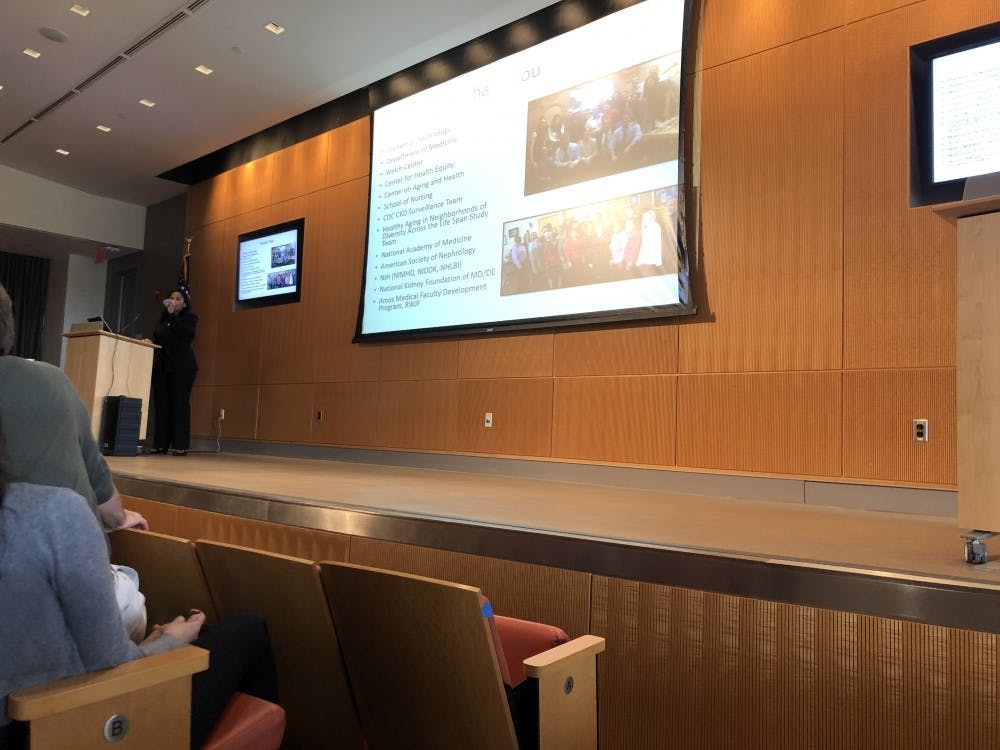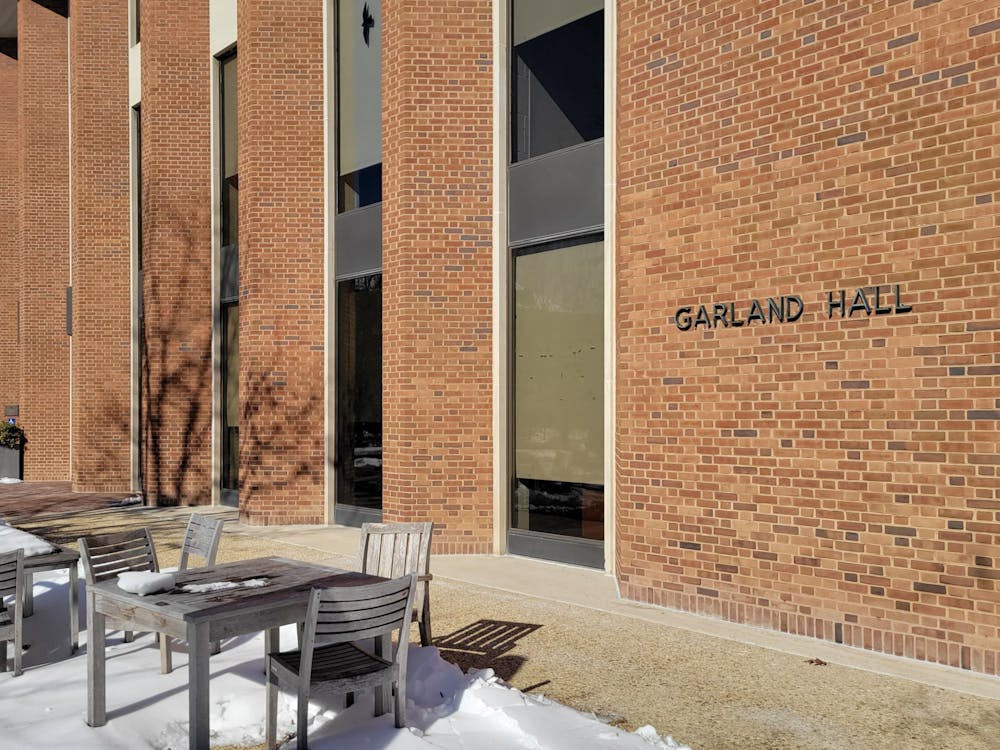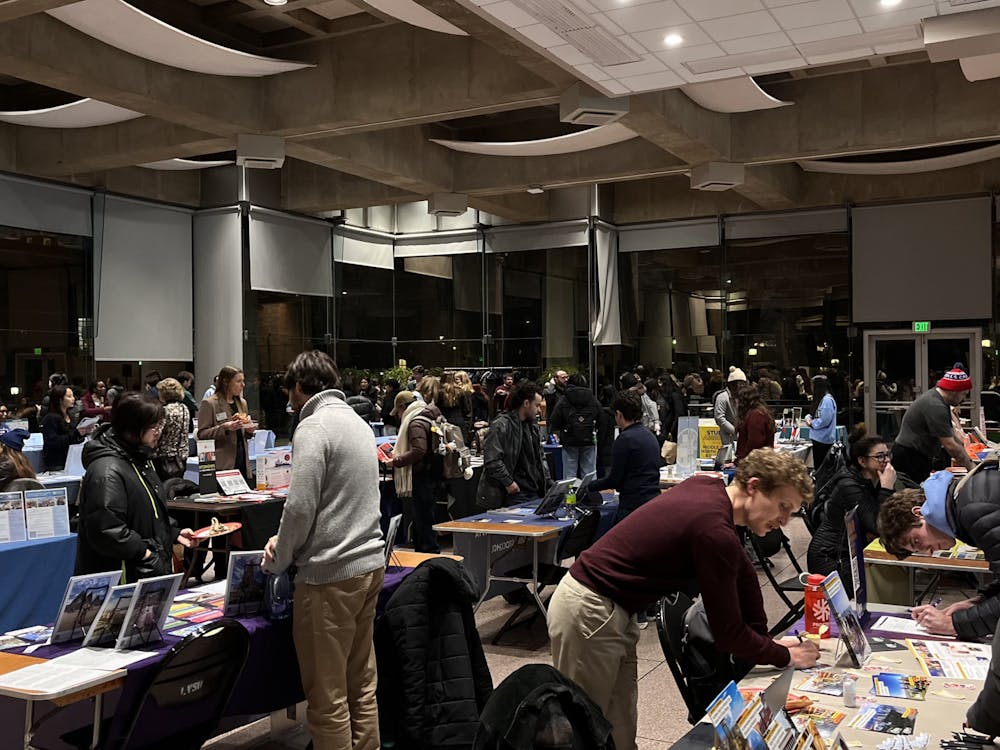The School of Medicine hosted Dr. Deidra Crews, recipient of the President’s Frontier Award, who discussed her research on kidney disease on Monday. Crews is an associate professor of Medicine and serves as the associate vice chair for Diversity and Inclusion in the Department of Medicine.
Crews’ research focuses on not only the medical causes and effects of kidney disease, but also the socioeconomic factors behind the racial disparities of who has this condition and how it is managed.
Crews began the talk by discussing pivotal experiences that led her to focus on community-engaged research. She highlighted her study abroad experience in Swaziland where she did medical rotations in a local hospital.
“In Swaziland, I learned what it meant for health to be socially determined,” Crews said. “I once saw a patient who needed treatment for HIV, and she said she would have to ask her husband for permission first. She never returned.”
Crews defined health equity, a concept that influences her research, as fair and equal access to health care.
Crews then highlighted the demographics behind kidney disease. According to her talk, African Americans make up 13 percent of the U.S. population but comprise 32 percent of the U.S. population with kidney disease.
“Lower-income populations are twice as likely to be afflicted than higher-income populations,” Crews said. “Additionally, African Americans, Hispanics and Asian Americans are less likely to receive donor transplants than white Americans.”
Crews discussed the interaction between genes and environment as factors that predict kidney disease, as well as the role of poverty.
“My research focuses on understanding that the zip code matters more than genetic code,” Crews said. “Stressors like income level or experience of discrimination get under the skin... where stress patterns predispose people to disease.”
She discussed dietary approaches to combating kidney disease, focusing on the DASH (Dietary Approach to Stop Hypertension) diet. Crews stated that people who naturally followed DASH diets were less likely to see kidney function decline. Research on diets like these led Crews to focus on the food insecurity afflicting nearly 40 million people.
In a study with Dr. Amber Johnson, Crews said low-income African Americans shared that healthy foods were expensive and hard to obtain.
“Healthy food is often unavailable in low-income neighborhoods,” Crews said. “Often, what you see is an abundance of fast food restaurants and a lack of fresh produce. Unhealthy foods are more convenient and these lifelong habits are hard to break.”
Crews spoke about her study Five, Plus Nuts and Beans for Kidneys, which investigates the impact of delivering nutritional advice and providing potassium-rich foods to residents of lower-income neighborhoods.
“The program provides residents with a food coach and also 30 dollars a week to spend on potassium-rich foods,” Crews said.
She talked about the financial advantages and national benefits of targeting these health disparities.
“Health disparities are costly, and gaps in care are responsible for 50 billion dollars a year,” Crew said. “We are the only country that spends more on health-care services than we do on social services. This is work that can help us financially as a country and also individuals who are suffering.”
She then went on to speak about her and her colleague’s work on addressing home environmental risk for dialysis patients. Older adults and dialysis patients often have functional limitations that impair their ability to live independently and often end with the patients being moved to nursing homes.
She specifically discussed a program called CAPABLE. Led by Sarah Szanton, the program combines handyman services with nursing and occupational therapy to improve mobility, reduce disability and decrease health care costs.
“Home-based intervention can lead to reductions in hospitalization and lead to improvements in functional status,” Crews said. “She’s been able to demonstrate that there has been a seven times return on investment through the savings of this program.”
She then expanded on her work with supporting dialysis patients who are homeless, specifically the challenges involved with eating the right food, taking medication on time and having transportation to dialysis treatment.
“Ideally, we’d like to move to a place where we can provide permanent supportive housing for these individuals,” Crews said. “In a number of other clinical settings, it’s been shown that this type of provision actually can lead to reductions in cost.”
She then discussed the Careers in Science and Medicine pipeline initiative that helps young individuals from disadvantaged backgrounds gain exposure to research and propel them toward a successful future.
“It’s important to think about who that workforce is that is going to do this work in the future,” Crews said. “We are at risk of having a brain drain if we’re not tapping into the full spectrum of the talent that is available to us. I’m confident that these young people will change the world, and we really have to invest in people like them if we are going to achieve health equity.”
Ageline Sahagun, who attended the talk and participated in Crews’ research initiative as a post-baccalaureate student, spoke about Crews’ impact on her own life.
“Dr. Crews means a lot to me. I definitely see a connection between what Dr. Crews is doing now and what I want to do in the future,” Sahagun said. “I came from a place that didn’t have a lot of research opportunities, and her initiative has helped me get into med school.”
Debra Gayles, a research coordinator for Five, Plus Nuts and Beans for Kidneys who also attended the talk, spoke about the importance of community-engaged research.
“While most students are looking for research opportunities in science labs, many don’t realize that they can also work with people and participate in research that directly improves the community.” Gayles said. “It is important to work with people who have an illness, at least to see how motivated they are to protect their own kidneys.”





